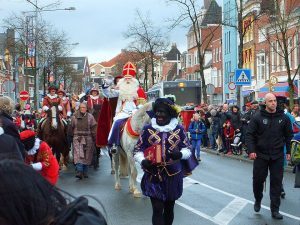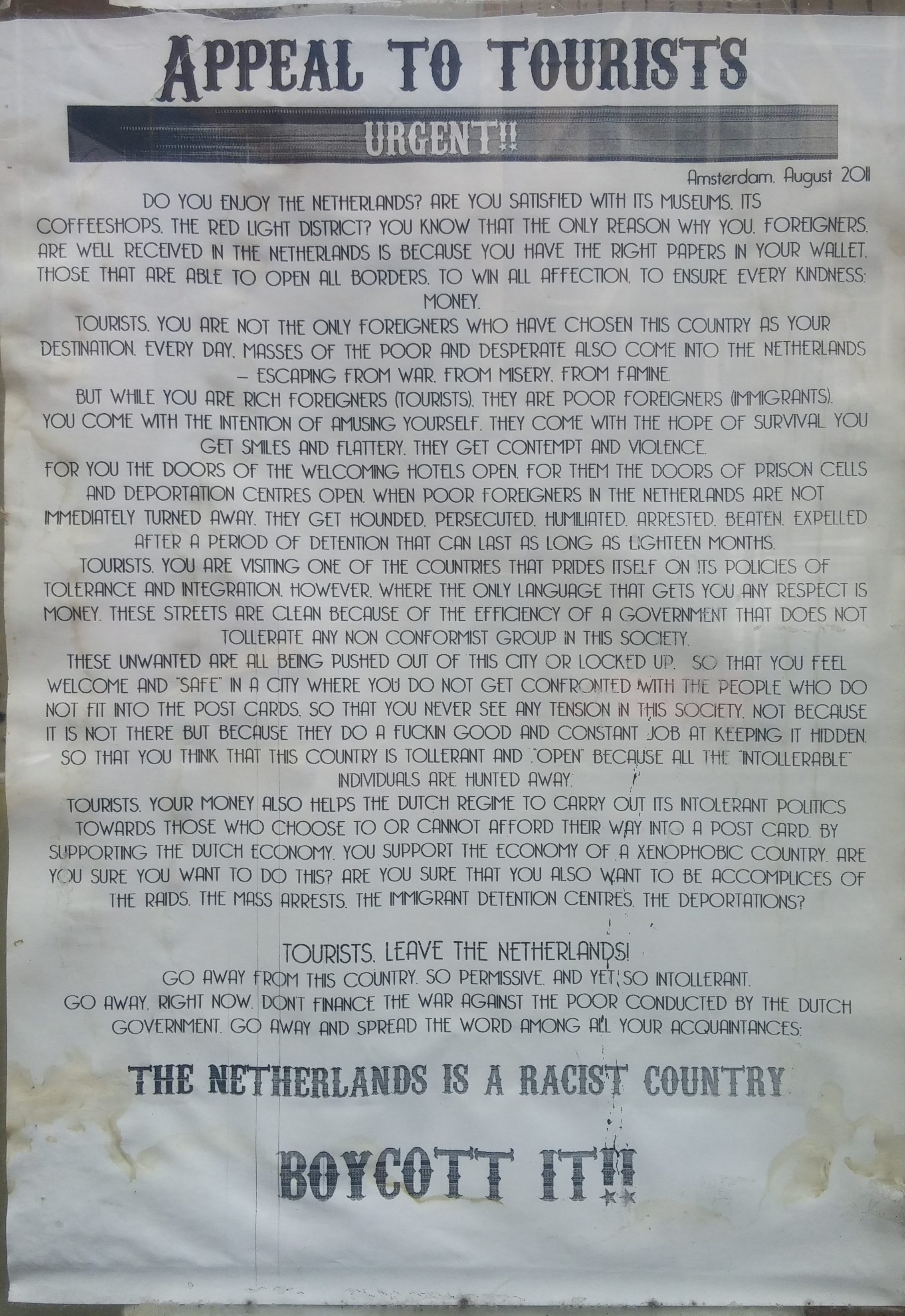AMSTERDAM– In the two weeks I spent in the Netherlands, I repeatedly encountered the Dutch vocab word “gedogen.” This cherished verb– which one pronounces by issuing a flem-clearing throat rasp at the appearance of each ‘g’– roughly means “to tolerate.” It describes a kind of pragmatic tolerance, often expressed to me as ‘turning a blind eye’ or ‘seeing it through the fingers.’
It can be used to describe minor, everyday occurrences and major policy positions alike. For example, when a classmate of mine asked if he could eat his apple in the public library, and the librarian replied “No… But I won’t see it,” she gedogd it. The term is also evoked to describe the Netherland’s (restricted) decriminalization of prostitution, soft drug use (including marijuana), and the use of euthanasia for assisted suicide. As Yasha Lange explained in a 2001 article published on BBC News, these activities are permitted because the government believes they will occur regardless of their legality, but pose a lesser threat to individuals and society as a whole if they occur openly instead of in the shadows. Pragmatic tolerance. Gedogen.
In the optimistic understanding of this term, gedogen alludes to an admirable tradition of respecting difference within the Netherlands. That is to say, the concept of gedogen both reflects and reproduces various forms of tolerance, including tolerance of religious difference, artistic expression, sexual orientation, and more. Gedogen becomes a banner flying high above the country that reads ‘everyone welcome’ and illuminates the Netherlands as an uncommonly progressive nation.
In a more pessimistic reading, gedogen is embedded in a mythical Dutch tolerance, which inhibits Dutch people from grappling critically with racism and other social issues. Gedogen helps build a hegemonic presumption of tolerance, which subjects any suggestion that the Dutch are not being tolerant to ridicule and scorn.
There is merit to both readings. As evidence of the optimistic reading we could point to the fact that The Netherlands was the first country in the world to legalize gay marriage. We could also highlight the country’s commendable harm reduction approach to combating hard drug use, which regards addiction as a health issue rather than a crime. Under this policy, drug users are able to trade in used needles for clean ones at designated centers. This reduces the spread of HIV and the issue of sharp needles being left around town, while also putting city workers in contact with users, allowing the city workers to direct people to resources for overcoming addiction. The evidence shows this tactic to be very effective. Another win for gedogen!

As a testament to a long history of tolerance, we could also look to the story of Amsterdam’s unusually non-violent Protestant Reformation, which was recounted to me on several tours. In the 16th century, Protestantism replaced Catholicism as the country’s major religion, and land was confiscated from the Catholic church– as was occurring across Europe. But in Amsterdam (the story goes) the leaders of the Catholic church were not killed or exiled. They were just temporarily exiled– sent away on a ship in a symbolic gesture, and made to walk back into town. Furthermore, Catholics were allowed to continue congregating, just not too publicly. This apparently passed for exemplary tolerance at the time.
As evidence of the pessimistic reading, we could look at the Dutch people’s resistance towards amending the Black Pete (Zwarte Piet) Christmas tradition. This long-standing custom involves white Dutch people donning blackface and Afro wigs, to play slave-like characters (black petes) that help Santa deliver presents. It seems that complaints from various anti-racist voices, both domestic and external, are largely dismissed. “It’s just a silly tradition!” Dutch people say, perhaps implicitly commenting “We can’t be racist…we’re Dutch!”
The Prime Minister Mark Rutte has repeatedly downplayed the issue, even going so far as to suggest black people love being able to join in the fun without having to go through the trouble of painting their faces: “My friends from the Dutch Antilles are actually happy they don’t have to paint their faces. When I play Zwarte Piet, it takes me days to wash that stuff off my face.”

Another example that suggests Dutch Tolerance can sometimes be a crutch instead of a reality, comes from the largely unfavorable reception among Dutch people to the recently published book White Innocence, by Dutch author Gloria Wekker. The book grapples with these very issues. It challenges “the dominant narrative of the Netherlands as a ‘gentle’ and ‘ethical’ nation”, looking to the country’s violent colonial past and contemporary racial issues. My summer course professors told me this book was widely admonished, by general and academic readers alike. Why is she making a big fuss over nothing, seems to have been a popular response.
One place I saw a counter-narrative to Dutch Tolerance being asserted, was at Vrankrijk— a space for alternative community events sympathetic to anarchist/socialist issues and initiatives. The building of Vrankrijk was plastered with righteous stickers relating to anti-fascist, anti-gentrification, pro-squatter, and pro-refugee causes. The window also featured the following poster, which encourages tourists to boycott the Netherlands for its racism, particularly its alleged hostility towards refugees:

The reality and non-reality of Dutch tolerance is a tremendously complex topic, which I can by no means assert to deeply understand. But I am grateful to have been exposed to some of the complexity and wanted to pass that learning along.